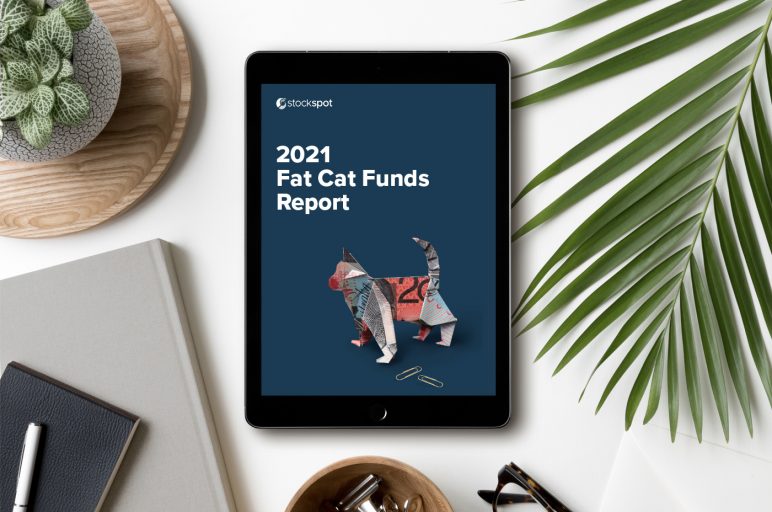Your superannuation matters. Yes, it can be complicated and frustratingly slow, but the sooner you get it sorted, the less you need to think about it.
Superannuation is the single-most important source of savings most Australians will have over their lifetime. This is why it’s important to get it right at your different life stages.
At this age, anything is possible. You’re working life out, planting roots or tearing them up and making changes. We know the last thing you want to worry about is superannuation.
But it’s at this time that getting into a good performing super fund can have the biggest impact on your financial future – and the ability to do all those amazing things you want when you stop working.
What’s the best type of super fund for your 20s and 30s?
Ideally you want to be in a ‘high growth’ or ‘growth’ fund. Growth funds should have a higher percentage of shares in them, about 70% – 80%.
The more shares you have in your superannuation means you have a better chance at higher returns. The good news is you’re young and can afford to take on more risk to aim for those high returns because you have a long time until you retire.
Why fees matter in your 20s and 30s
A typical Fat Cat Fund charges 2% per year in fees. Two percent doesn’t sound like much, so let’s look at how much that is over a lifetime of work.
The average 20 – 30 year old in a Fat Cat Fund can expect to lose $225,000 (27%) of their potential super savings to fees over their lifetime. Imagine what you could do with that money – you could retire years earlier and travel the globe.
Find out who are the best performing growth and growth superannuation funds in Australia in 2021.
3 top super tips in your 20s and 30s
- Make sure you’re in a growth or high growth super fund. You have time on your side and can afford to take more risk. These funds have the potential for higher returns. This means more money for you in the future!
- Pay less than 1% in fees. Find a fund with low fees. Remember you could have an extra $225,000 when you retire (how many round-the-world-trips is that?) simply by paying less in super fees.
- Consolidate your funds. No doubt you’ve heard it before. Having more than one super fund is paying double fees. Most super funds will help you consolidate your funds. This will also help ensure you don’t pay double for insurance premiums.
Effect of fees in your 20s and 30s
| SUPER FUND CATEGORY | EXPECTED SUPER BALANCE AT RETIREMENT BEFORE FEES | FEE AMOUNT | EXPECTED SUPER BALANCE AT RETIREMENT AGE AFTER FEES | HOW MUCH OF YOUR RETURN IS LOST IN FEES |
| High fee fund (2% p.a. fee) | $1,243,916.18 | $334,826.36 | $909,089.82 | 27% |
| Low fee fund (<1% p.a. fee) | $1,373,612.72 | $108,565.31 | $1,265,047.41 | 8% |
Here are two questions to ask your super fund
What’s the total investment fees I’m paying?
If the answer is more than 1% p.a. your superannuation fund could be a Fat Cat Fund.
Super funds can be a tricky bunch and some make it difficult to understand how much you pay them to manage your money. Fee disclosure varies greatly between funds: many don’t show fees on their website and hide them deep in downloadable documents.
Don’t give up! Keep asking. They have to tell you. Investment performance comes and goes but fees cost you every year.
It’s important you know how much you pay your super fund, it could mean the difference of hundreds of thousands of dollars in retirement.
Do you use ETFs or index funds?
Our research shows that 97%^ of growth super funds did worse than Stockspot’s low-cost index portfolios after fees and taxes.
Index funds are easy to access for superannuation managers, yet many choose not to because of the conflicts of interest in the industry.
The Final Word
Remember the number one golden rule is always less than 1% p.a. in fees. Simple!
FAQs
How should I invest my super in my 20s?
Generally when you’re younger you should have a higher allocation to growth assets like shares and property which tend to provide higher returns over long periods.You also have time to recover from any share market falls.
How can I build my wealth in my 20s?
In your 20s it’s important to have a ‘rainy day’ fund so you can pay for any unexpected expenses. Once you have some reserve savings, extra money you earn but don’t need to spend can be invested in a diversified portfolio to help you grow your wealth.
What should my super be at 30?
In your 30s you should have a higher allocation to growth assets like shares and property which tend to provide higher returns over long periods. Low fees of under 1% are also important to improve your retirement super balance.
Can I access my super at 30?
Generally you can’t access your super until at least 66 in Australia. The ATO provides a limited list of circumstances for early access to super such as severe financial hardship and the First home super saver scheme (FHSSS).
^ These findings are consistent with research from Finalytiq which found similar results in the UK: Finalytic, The Multi-Asset Fund Guide, S&P Dow Jones whose SPIVA research shows that 80% of active Australian share fund managers have underperformed the index over 15 years. S&P Dow Jones SPIVA Australia Year End 2019





